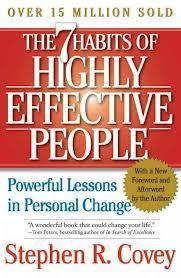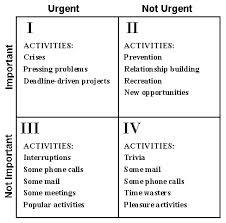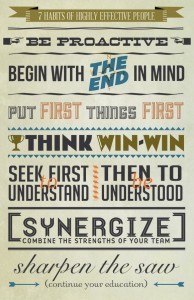The Seven Habits for Writers Part 1: Private Victories
 Wouldn’t you know it, but just a month or so after getting laid off in Hood River and after we’d moved back in with my parents in the Portland area, they called my husband back part time. So now, three days a week we drive out to Hood River and I live in the library and coffee shops while he’s at work. While drinking all those Americanos and eating chocolate croissants while writing is hardly torture, the drive is an hour an a half each way.
Wouldn’t you know it, but just a month or so after getting laid off in Hood River and after we’d moved back in with my parents in the Portland area, they called my husband back part time. So now, three days a week we drive out to Hood River and I live in the library and coffee shops while he’s at work. While drinking all those Americanos and eating chocolate croissants while writing is hardly torture, the drive is an hour an a half each way.
So, my husband and I started having him read to me in the car. We picked the iconic “The 7 Habits of Highly Effective People” which I had never bothered to read back in the 80s when it was all the rage. While Covey is a bit bumpy out loud in his sentence structure, I really enjoy listening to the book and debating it’s points with my husband. Naturally though, as an author I tend to try to apply any and all informational books to the process of writing and how I can use it to further myself.
I think despite some of the dated stories and ideas, that the 7 Habits is still very relevant and useful, and applies quite nicely to writing. Yanking it off teh shelf and dusting it off was a good decision. There’s a lot of life left in this classic. Let’s start with the first three “private victories.”
Basically, this habit is about owning our choice to act/react to things. No matter how small or narrow, we have a choice between when something happens and what we do about it. We chose whether we’ll act or be acted upon and which emotions we let consume us, which attitudes we immerse ourselves in. And this is true of a writer as much as anyone.
I’ve met a lot of “writers” who all say something along the lines of “I’d really like to write but…” filled in with a bunch of reasons why life doesn’t allow them to. Jobs, kids, parents who don’t approve or consider creative work “real,” a world out to get them in some respect that just doesn’t allow them to have the “time” to get anything written.
The second biggest trap I meet people falling into is enmeshed in woe over the state of the industry. In query rejection depression I’ve slipped into this one myself. It’s so easy to take a victim mentality when dealing with putting your heart out there on the line and getting rejected. Suddenly you’re “helpless” and all of society is holding you back from your dream, leaving bitterness and resentment.
Proactivity means setting aside the idea I’m stuck, that life is acting on me, and see myself as the person who acts. To focus my concern on what is in my control–that I sit down every day, laptop in front of me and write. That I do my research, edit my work, exchange my crits, write my queries, and put myself out there. If other things in my life steal priority, that ought to be because they’re important to me, not because I’m a victim of life. And my writing happens for the same reason, because I chose it.
That’s a message we could all use hearing again and again.
Habit 2: Begin with the End in Mind
I don’t think I could come up with a better bit of writing advice when tackling a novel than Habit 2. Before a book can exist on paper, it needs to exist in the author’s mind. Now, before all the pansters start an uproar here, I don’t mean that we have to know the literal end of the novel. This is “end” in a general sense.
What is this novel as a whole? What sort of dream is it? Can you picture the book in your hands? The feeling it gives you when you read it? What is it about at its heart, this idea, how does it move you? If I don’t have that for a book, regardless of how much of the plot I plan ahead of time, the book doesn’t live.
I need to know what I want to achieve through a novel when I start it, or it won’t have the clarity to keep through the heat and toil of actually getting the project done. When writer’s block hits, when doubts overwhelm me both about the idea and my worth as a writer, I need that vision, that “end” to help carry me through to reaching it.
This also I think goes for career in general. What is my mission as an author? What do I want to ultimately do and say with my writing? What does success look like for me? These are important ends, that can guide my inner focus and determination. And looking at how that evolves as I mature as a writer is also important. Some of my goals remain unchanged, while others have changed into new perspectives–such as ebooks and my belief in their importance and reaching young readers through them as well as print. Having that mission, both for my career as a whole and each book, is crucial.
Habit 3: Put First Things First

This section of the book has a little chart that I pretty much need to post in front of myself as a constant reminder. Covey offers a lot of great thoughts about organizing time and trying to not live always bouncing between important urgent crises and time wasting non-urgent non-important tasks on the rebound. I think that it’s significant that most actual writing tends to be a non-urgent but important (quadrant 2) activity. It’s often pushed out into the sidelines of life by the back and forth emergency and recovery sort of life style.
Within my writing tasks themselves, it’s also important for me to look at the goals involved. What are my goals for new books, books currently in editing, my marketing, and what activities are needed for each. All very practical and solid advice for planning it out and getting what I need to get done, done. And no, I’m not quite managing it (thus doing nano left me neglecting the blog and so on), but it’s quite inspiriting. As I come up on May, I want to dive into really embracing these three inner changes and adapting them to fit what I need to increase the effectiveness of my writing.
These three “private victories” I took listening to the book to be what relates for me most to the actual process of writing. After I go actually do some writing, next blog article I’ll muse on what Covey calls “public victories” and how I consider these habits to be related to the world of publishing.




